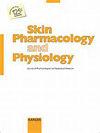The Emerging Therapeutic Targets for Scar Management: Genetic and Epigenetic Landscapes
IF 3.2
4区 医学
Q2 DERMATOLOGY
引用次数: 5
Abstract
Background: Wound healing is a complex process including hemostasis, inflammation, proliferation, and remodeling during which an orchestrated array of biological and molecular events occurs to promote skin regeneration. Abnormalities in each step of the wound healing process lead to reparative rather than regenerative responses, thereby driving the formation of cutaneous scar. Patients suffering from scars represent serious health problems such as contractures, functional and esthetic concerns as well as painful, thick, and itchy complications, which generally decrease the quality of life and impose high medical costs. Therefore, therapies reducing cutaneous scarring are necessary to improve patients’ rehabilitation. Summary: Current approaches to remove scars, including surgical and nonsurgical methods, are not efficient enough, which is in principle due to our limited knowledge about underlying mechanisms of pathological as well as the physiological wound healing process. Thus, therapeutic interventions focused on basic science including genetic and epigenetic knowledge are recently taken into consideration as promising approaches for scar management since they have the potential to provide targeted therapies and improve the conventional treatments as well as present opportunities for combination therapy. In this review, we highlight the recent advances in skin regenerative medicine through genetic and epigenetic approaches to achieve novel insights for the development of safe, efficient, and reproducible therapies and discuss promising approaches for scar management. Key Message: Genetic and epigenetic regulatory switches are promising targets for scar management, provided the associated challenges are to be addressed.疤痕管理的新兴治疗靶点:遗传和表观遗传景观
背景:伤口愈合是一个复杂的过程,包括止血、炎症、增殖和重塑,在此过程中,会发生一系列生物和分子事件来促进皮肤再生。伤口愈合过程中每一步的异常都会导致修复反应,而不是再生反应,从而导致皮肤疤痕的形成。患有疤痕的患者代表着严重的健康问题,如挛缩、功能和美观问题,以及疼痛、粘稠和瘙痒的并发症,这些并发症通常会降低生活质量并带来高昂的医疗成本。因此,减少皮肤疤痕的治疗对于改善患者的康复是必要的。总结:目前去除疤痕的方法,包括手术和非手术方法,不够有效,原则上是由于我们对病理和生理伤口愈合过程的潜在机制了解有限。因此,专注于基础科学(包括遗传和表观遗传学知识)的治疗干预措施最近被认为是疤痕管理的有前途的方法,因为它们有潜力提供靶向治疗,改善传统治疗,并为联合治疗提供机会。在这篇综述中,我们强调了皮肤再生医学的最新进展,通过遗传和表观遗传学方法,为开发安全、高效和可重复的疗法获得了新的见解,并讨论了有前景的疤痕管理方法。关键信息:遗传和表观遗传学调控开关是疤痕管理的有希望的靶点,前提是相关的挑战有待解决。
本文章由计算机程序翻译,如有差异,请以英文原文为准。
求助全文
约1分钟内获得全文
求助全文
来源期刊

Skin Pharmacology and Physiology
医学-皮肤病学
CiteScore
5.20
自引率
7.40%
发文量
23
审稿时长
>12 weeks
期刊介绍:
In the past decade research into skin pharmacology has rapidly developed with new and promising drugs and therapeutic concepts being introduced regularly. Recently, the use of nanoparticles for drug delivery in dermatology and cosmetology has become a topic of intensive research, yielding remarkable and in part surprising results. Another topic of current research is the use of tissue tolerable plasma in wound treatment. Stimulating not only wound healing processes but also the penetration of topically applied substances into the skin, this novel technique is expected to deliver very interesting results.
 求助内容:
求助内容: 应助结果提醒方式:
应助结果提醒方式:


